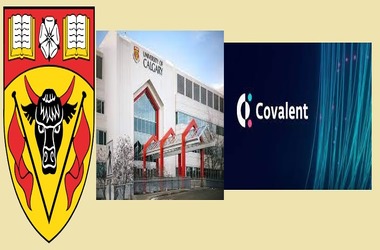In a groundbreaking move, the University of Calgary has achieved the distinction of being the first university to serve as a validator on the Covalent Network. Spearheading this initiative is Dr. Alfred Lehar, a distinguished professor in the Finance department at the Haskayne School of Business, accompanied by a team of diligent research assistants. Their primary responsibility involves collecting data from a blockchain, subsequently transmitting it to the Covalent Network, where participants analyze and utilize this valuable information.
The Mutual Excitement of Collaboration
The collaboration between the University of Calgary and Covalent is mutually advantageous. As the Covalent Network expands with the inclusion of another validator, ensuring long-term stability, the university gains access to intricate chain data that holds immense potential for research and hands-on blockchain education. Serving as a validator also positions the university to receive staking rewards in Covalent cryptocurrency (CQT), which can be utilized to fund further research endeavors. As a gesture of support, Covalent has endowed the university with 175,000 CQT, equivalent to approximately $44,000 CAD, to catalyze this collaborative venture.
Dr. Alfred Lehar’s Perspective
Dr. Alfred Lehar emphasizes the unique opportunity this collaboration presents to students, offering exposure to cutting-edge blockchain technology and fostering a deeper understanding of the new economy. He underscores the significance of collecting data that contributes to profound research endeavors. The university’s role as a validator not only facilitates Covalent’s network growth but also provides an invaluable learning experience for students.
Unlocking the Complexity of Blockchain Data
While blockchain data is publicly accessible, extracting and comprehending it is a formidable task. Dr. Lehar and his team shoulder the responsibility of accessing and organizing this complex data, rendering it in a more user-friendly format for the Covalent Network. The technical intricacies involved in handling billions of individual data points are mitigated by the university’s efforts, enabling users to seamlessly access live network activity, spanning transactions to game quest completions.
Ganesh Swami, CEO of Covalent, Envisions the Future
Ganesh Swami, CEO of Covalent, envisions a future where the immediate availability of live and historical data in various formats becomes integral to blockchain’s evolution. Dr. Alfred Lehar and his team play a pivotal role in ensuring the realization of this vision. The Covalent blockchain data has already had a positive impact on empirical blockchain finance research at the University of Calgary, elevating their understanding of blockchain’s potential in traditional financial activities.
Advancing Financial Efficiency with Blockchain
Already recognized for their empirical blockchain finance research, Dr. Lehar’s team leverages the Covalent Network to explore how blockchain technology mirrors traditional financial processes such as stock trading, borrowing, lending, and investing. Their findings suggest that mechanisms arising on the blockchain are often more efficient than those in traditional institutions. This revelation opens avenues for enhancing financial institutions’ efficiency and expanding access to superior financial products.
Future Endeavors with Covalent Blockchain Data
Dr. Lehar and his team remain committed to utilizing Covalent blockchain data to delve deeper into how financial markets operate and the potential risks they may entail. Their ongoing research aims to uncover insights that could revolutionize financial systems, with estimates suggesting that transitioning the U.S. stock market to blockchain could result in substantial cost savings and improved liquidity. As the University of Calgary continues to pioneer in blockchain validation and research, the collaboration with Covalent promises ongoing advancements in the realms of academia and blockchain technology.

